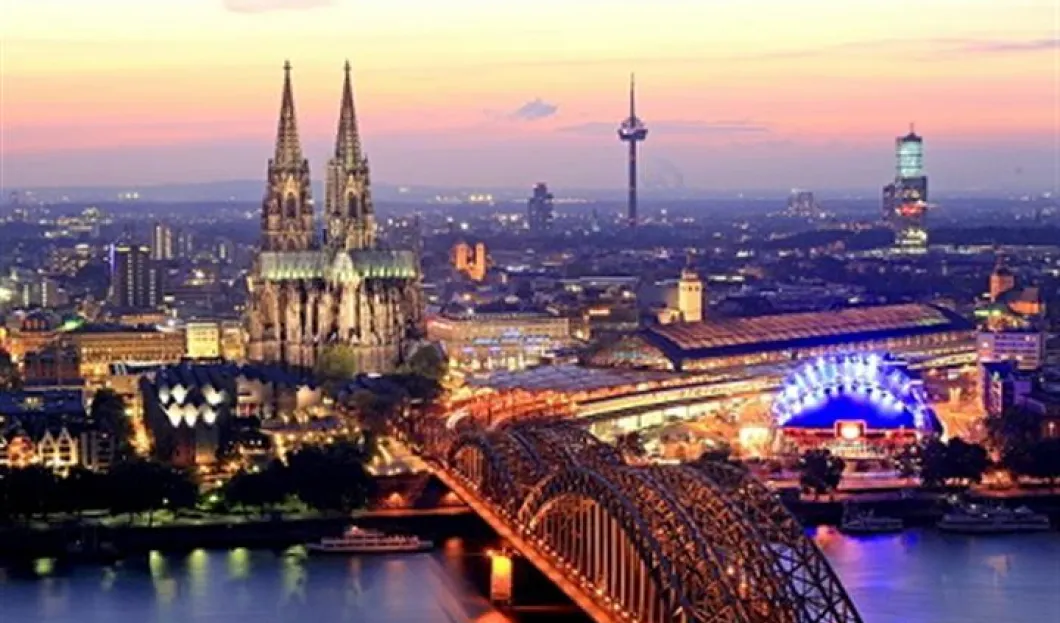
While Germany reports new records in terms of tourism, the number of tourists in Cologne declined sharply at the turn of the year. The main reason were the New Year’s Eve gang assaults on women that shocked the whole country.
Hundreds of worried people from all over the world were calling the official tourism board of Cologne at the end of the year. Tour operators as well as tourists wanted to know the security situation of the cathedral city after the attacks on women around the main squares and railway station.
Currently, there are no more questions, says Josef Sommer, the managing director of Kölntourismus. “The tourists have forgotten.”
As a result of the headlines in the media, the amount of foreign tourists in Cologne decreased significantly throughout 2016. The German National Tourist Board (GNTB) reported the seventh consecutive record for Germany as a whole in terms of tourism. North Rhine-Westphalia has also reported a new record in terms of visitors. However, Cologne had to accept noticeable losses in arrivals and overnight stays.
Japanese Tourists Attracted by Photokina
In 2016, around 3.35 million guests visited Cologne, which is a decrease of 3% compared to the year before. The number of overnight stays dropped by 3.5% to only 5.8 million.
In terms of overnight stays, only 2 of the 15 most important countries registered an increase in Cologne last year: China and Japan. The 1.6% increase for the Japanese visitors is explained by the world’s largest imaging fair, Photokina, which took place in the fair halls on the Rhine in the autumn of 2016. This fair has attracted many business travelers from Japan.
On the other hand, China’s increase was caused by leisure tourists. However, there is not much to cheer about. The 8.7% increase is significantly lower than the development in the previous years, when Chinese inflow increases exceeded 30%.
Change of Preferences
“Some trip organizers from China have changed their European routes,” says Mr. Sommer. Instead of going to Brussels or Paris, a round trip begins in Prague or Vienna. Thus, far further from Cologne. “This decreases our chances to be part of the travel program.”
Elsewhere, Cologne has also disappeared from travel plans. Source markets such as Poland, the Netherlands, Switzerland and Italy have decreased by as much as 10% in terms of overnight stays. Overnight stays by UK citizens have even decreased by more than 12%.
“The attacks have raised security concerns among foreign tourists in Cologne. Metropolises and big cities feel this very particularly,” says Kölntourismus CEO Sommer. In case of Great Britain, the Brexit has also had an effect. This is accompanied by a loss of purchasing power for the English. “And if our most important foreign source markets weaken, we notice that.”
Brits Respond to the Brexit Vote
The negative trend, however, was also noticed even before the Brexit vote at the end of June. In the first half of the year tourism in Cologne was in a much worse state than in the second half, as the statistics show. Especially in March, May and June, the overnight stays were well below figures from the previous year, even though these months included many holidays, providing Germans with special offers for city trips.
In January and February, on the other hand, the period immediately after the New Year’s events, the authorities recorded only slight decrease. “Travelers only cancelled trips in exceptional cases,” Sommer said. “Instead, there was then a large reservation reserve: it has refrained from Cologne-Reisen, which were planned, but not yet booked.”
According to Kölntourismus, the Domstadt is primarily a leisure-driven destination. According to a survey, many private travelers had changed their travel plans.
New Travel Opportunities
In the second half of the year the situation improved. In September, October and November, overnight stays were higher than in the previous year. The event program of the Cologne fair also played a role in this. Nevertheless, Sommer is optimistic for 2017. “We are optimistic that we can stop the decline this year.”
Kölntourismus wants to launch new travel offers away from sights and shopping centers. Urban exploration is the key word. “Tourists in Cologne want to immerse themselves more and more in the local scenes of the cities and stroll there like locals,” says Stephanie Kleine Klausing, who is responsible for marketing in Kölntourismus.
Design, art, food, fashion and music are the important themes beyond the main tourist routes. #urbanCGN is the name of the initiative, which is now supplemented by #urbanana, an EU-funded project on creatively oriented urban tourism. Düsseldorf and the Ruhr metropolis are also participating in this initiative.









